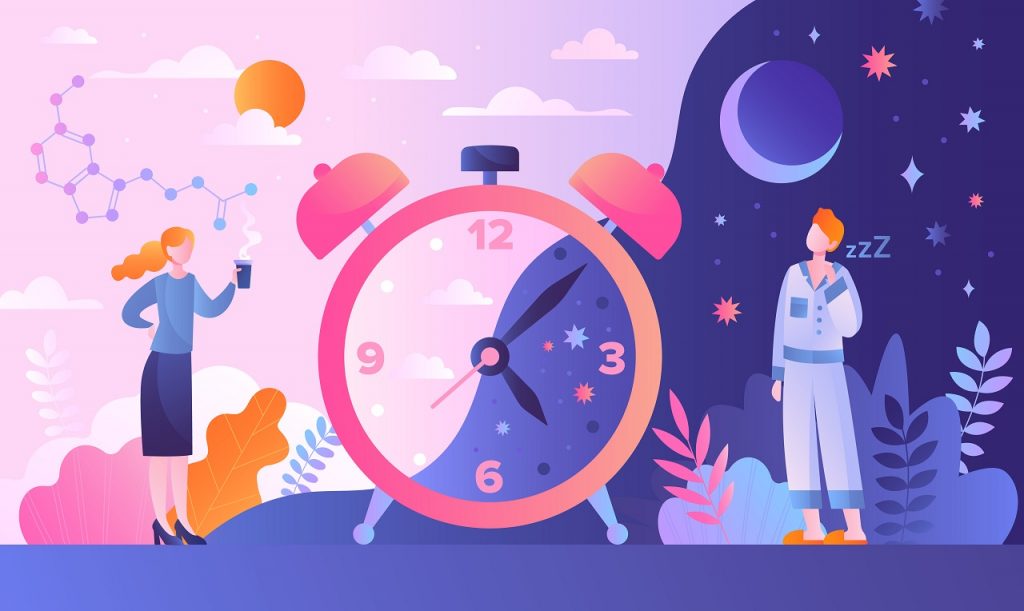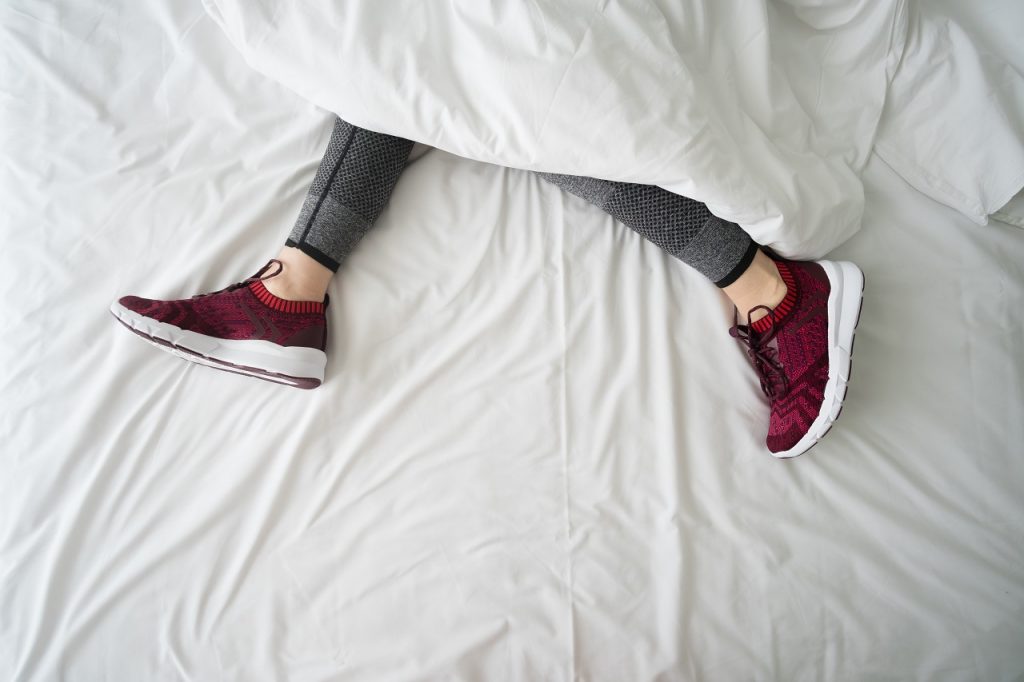
- Circa – Circular – meaning the one going round and round – repeating itself
- “Di”an – Pertaining to Day – or Daily
- Rhythm – A regular & repeated pattern of movements (ups & downs) occurring naturally
Circadian Rhythm (CR) is driven by consumption of light – (light again!) – however, research has proven that light is not necessary and it was observed that the rhythm works more or less correctly even if someone is locked in a very dark place for a long time. But it is also proven that light can drive/influence the rhythm.
Trivia: CR is not exactly 24 hours – it is approximately 24 hours + some 15 minutes!
The Third Eye/Body clock – known technically as “Suprachiasmatic Nuclei” (why not a simple name?) – of just 10,000 neurons (brain has 100 billion) situated in the hypothalamus area of brain, exactly above the place where the optic nerves from the left and right eye do the “X over” to the other side of the brain, is the main controller of the Circadian Rhythm. It is impacted by the “light” signals coming from the eyes.
Be very clear, the Third eye controls the “sleep-wake” cycle and it is sensitive to “light”!
Not all people have SAME CR!! They fall into either of the 3 types:
- The Early Birds (25%)
- The Night Owls (25%)
- The Commoners (50%)
There is approximately 1-2 hours of difference in the rhythm between the Early Birds and the Night Owls and the Commoners fall in between. To check your type, google it – web has several free tests.
One’s energy levels, alertness, body temperature, heart rate all have clear correlation to the CR. It is proven that core body temperature falls by up to 2 degree Celsius and heart rate by up to 20 beats per minute. Modern day work environment requires one to have an average to above average energy level and alertness throughout the day. But it is a natural fact that it is NOT. So, we resort to coffee or tea (impact of caffeine in a separate note later).
If we can closely observe and keep our key meetings in alignment with the CR, we may actually get more productive. In my personal experience I have observed peak productivity between 11-1 in pre-lunch and 4-6 in post lunch sessions. HR processes in companies could use such simple tests to identify rhythm types and create groups of people that complement each other to boost productivity. As I have often seen in boardrooms, there’s always one person presenting with lots of energy and some are following and some are behind! It could simply be the difference in their CR type.
Jet lag is primarily a result due to change in CR. Time clock of the geography and your CR are not aligned, hence the lag. It is said that the lag adjusts @ 1 hour per day.
Circadian Rhythm & Sleep – How To Make It Work For You
- Observe your CR and understand your CR type, hours of peak productivity – they remain the same throughout your life. Use the natural surge in alertness to your advantage.
- One tip to get sleep is to start on time and send clear signals to the CR system in the morning by standing in clear sunlight for at least 10 minutes (you might get Vitamin D in the bargain) – When CR registers that signal, it will promptly align the clock to trigger sleep in the night – I tried this as many days as possible
- World over, people keep an alarm to wake up – Reverse the process – If only you can keep an alarm to start sleep at same time of the night, then you WOULD NOT need an alarm to wake up – that too grumpily – Stick to SAME time (or in a range of 30 minutes) to go to bed, even if you do not get sleep in the beginning.
- One should reduce exposure to light post 7:30PM – send clear signals that it is night time – Candlelight dinners are a brilliant way to signal Melatonin secretion.
We hope you enjoyed reading this article so far. Stay tuned for more from the Sleep Series! To read more about sleep and sleeping techniques, check out Healthy Reads or speak to a certified expert by subscribing to GOQii’s Personalised Health Coaching here.
#BeTheForce






